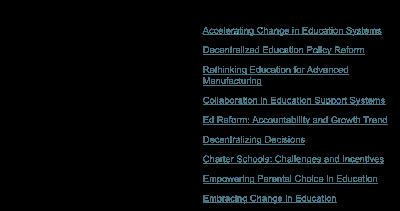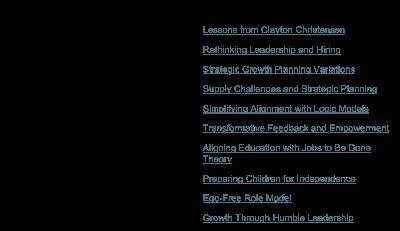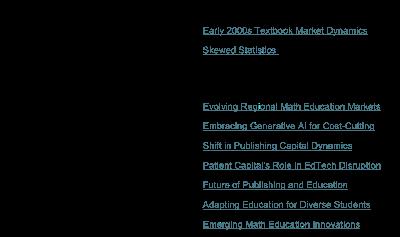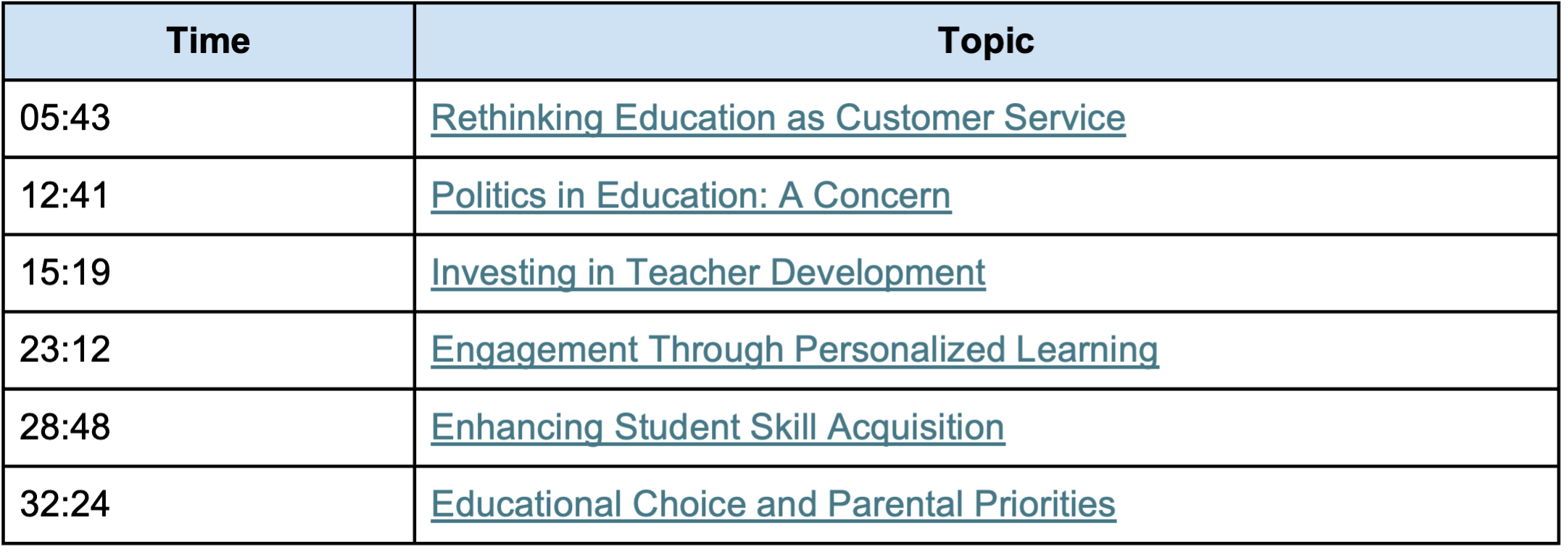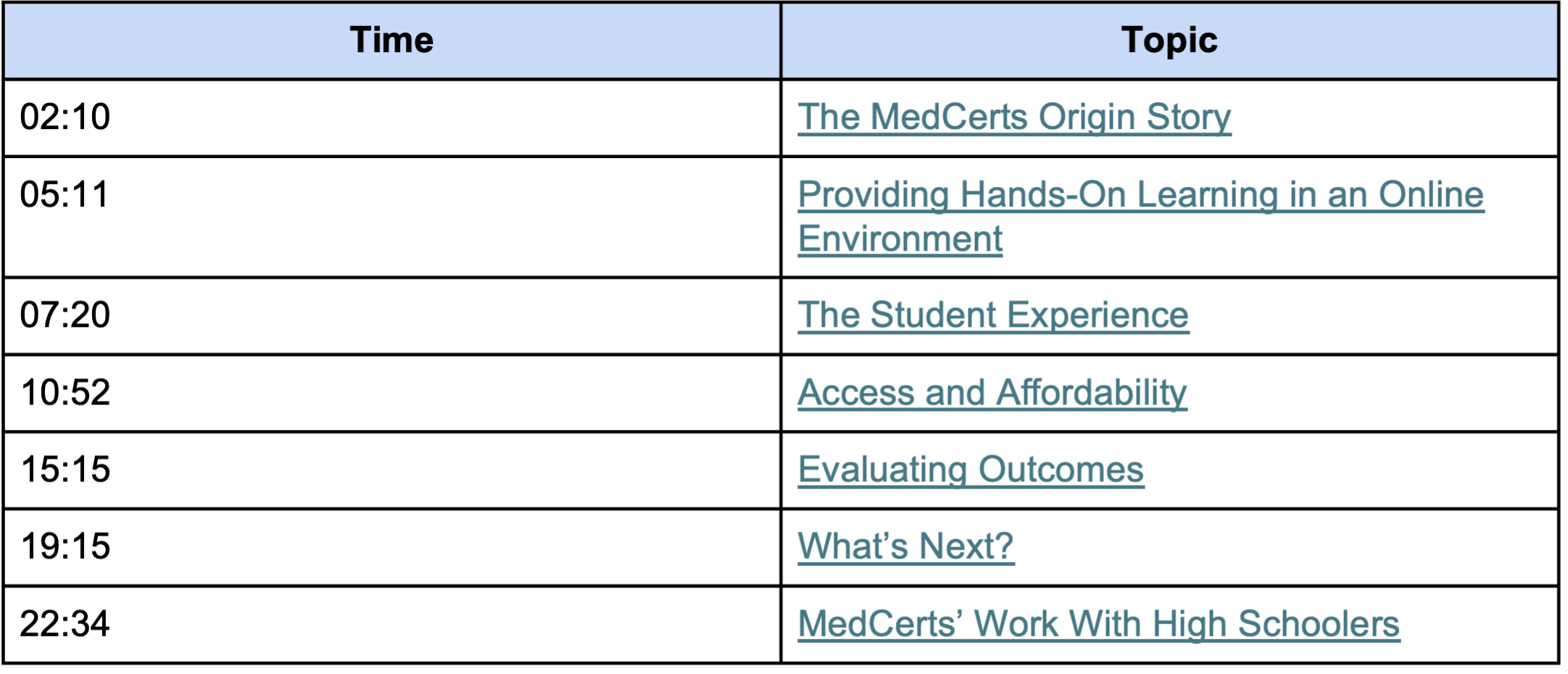What AI Can Do For Online Learning Simulations
Description
Dave McCool, founder and CEO of Muzzy Lane, joined me to discuss the role and potential of AI in creating dynamic, role-play simulations for online learning. Dave shared the journey of Muzzy Lane, from its early days developing history games for schools to its current focus on enabling educators to easily build their own customizable, auto-graded simulations across more than 100 higher-education course areas. Our conversation highlights how recent advances in AI have transformed the process of authoring simulations. It’s now much faster, more accessible, and more engaging for both instructors and learners.
I highly recommend you don’t just read or listen to our conversation; watch it because Dave gave a live demo of the use of AI to create simulations. Show don’t tell, as the saying goes.
Michael Horn
Welcome to the Future of Education. I'm Michael Horn and you are joining the show where we are dedicated to creating a world in which all individuals can build their passions, fulfill their potential and live lives of purpose. And to help us think through that, today we have a special guest, Dave McCool. He's the founder and currently the CEO at Muzzy Lane, which basically creates dynamic role play simulations in a variety of fields. We're going to learn a lot more about it, but simulations have been an area that I've been very interested in for a long time in the world of digital, online learning and so forth for its ability to frankly create more real world, real life learning experiences for individuals. Dave, welcome. So good to see you and thanks for joining us.
Dave McCool
Thanks for having me here today, Michael.
Michael Horn
Yeah, so let's dive in maybe, because I think simulations have taken almost like a, you know, level up, if you will, from video game land. Right. With AI over the past few years. But let's go back a little bit further than that. Just the founding of Muzzy Lane. What was the big idea behind it? How's the company evolved? Who are sort of, you know, who do you serve right now? Where are these simulations and where are they hitting learners at the moment?
Dave McCool
Perfect. Yeah. So the big idea is a great place to start. So I'm a software engineer by background and so when we started Muzzy Lane in early 2000s, we had an interest in games and simulations, looked kind of at the landscape and saw education. More digital transformation was happening in education and just felt as a software engineer is like, this is a great place for games and simulations. It's a great place for deeper, more complex interactive software that can really get at better learning experiences and better assessment experiences. So that was really the big idea. 2002 was a very different time than today.
So, you know, we went through a lot of iterations trying to find the right formula. You know, the first half of the company's life was really, we created and released history games into high schools and colleges called Making History. People who use them, love them. Not as many people use them as we had hoped in education at the time, but that series lives on in the commercial space on Steam, so it's still available today. Did a lot of work with publishers. Really kind of most of our work's been in higher ed over the course of the company's Life. A little K12 and a little workforce. But I think for us the big turning point for us was 2014 and 15, the Gates foundation, they gave us a research grant because they'd made a lot of investments in games and simulations for learning and hadn't been getting the results they were hoping for.
So they wanted us to study the market, which was interesting for us as sort of startup software people, to do a research project.
Michael Horn
Yeah, I was about to say, how did that, how did that land for y' all?
Dave McCool
It was good. We. It was a period. A colleague of mine, Connor Ryan, came in and was running the company at the time while I was running the tech transformation we were undergoing. So he had a good experience that we didn't with that. And so we. It was a really great experience.
We produced a 40-page report which is still available on our website.
Michael Horn
What did you learn? Like, what were the headlines from that report?
Dave McCool
I still remember the headlines today. And it was because they were, they were humbling really for us. It was high awareness of games and simulations among instructors and administrators in university, especially online. But all sorts of logistical challenges with what they were being offered. Things were generally too big, too inflexible. Don't disrupt my course became the thing we heard most commonly. We see the value in what you're doing. I'm not rebuilding my whole course around.
Michael Horn
You, but I wanted to fit in as a module as opposed to. To I have to rethink 10 of the 13 weeks or whatever.
Dave McCool
Right. So it still has to be a scale that fits with my course that fits with my learning objectives, like time. Like I don't have enough time to spend on that particular part of my courses that this game is going to require for me. And they wanted to control the content. They didn't want to have to go back to a developer constantly to get changes made and updates made. And then kind of the basic ones were it has to run any device in a browser, on a phone, including had to integrate to the LMS, which meant LTI integration. And it had to meet WCAG 2.0 AA Accessibility Now 2.2, which again, these were not things people. We came kind of from the serious games and the games for learning side and we were kind of like, oh, games are great and you're going to adjust to get those benefits.
So anyway, we were doing a tech transition at the time anyway, that's when the authoring tools came out and we said, let's just go all the way down to we're going to start putting these tools in the hands of our partners, teach them how to use them, make it as easy as possible. And that's really been the business ever since.
Michael Horn
Super. And so what higher ed programs specifically? Like, when you're talking about the simulations, where have you found the most traction? Are we talking like nursing and it's almost VR like, or are we talking negotiations? Like, there's a pretty big range of what these can look like. Where, where have you found the most traction?
Dave McCool
Yeah, I think so. We, when we thought about the tools, we thought about how to help people build their own simulations for learning, we thought a lot about ROI, because when you were building specific games, like we built for principles of Marketing, we built for intro Spanish, we built for operations management, but you're building one big product for one course area and it's hard to make that money back. It's hard to make that work financially. So what we wanted to do is build templates that were as broadly applicable as possible. So we wanted to make content forms that you could then fill in with what you needed for your course area and hopefully those would travel pretty broadly. So we're in over 100 course areas in higher ed. Business is probably the number one by usage overall. But a lot of nursing, a lot of medical fields like medical assisting, a lot of the humanities as well.
So we're in language learning, we're in sociology, psychology, crisis counseling, social work, all those kinds of places. And the role play format of the multiples that we have really has become the most popular one just because it does travel really well and it really fits a lot of what people try to do.
Adapting Games for Education
Michael Horn
And so the, and it sounds like the secret became, okay, we're going to give up our adherence to what a serious game needs to look like or what the ideal version of it is. I'm sort of reminded of the Greg Toppo book, I think the game believes in you, right, where he sort of said there's this clash of like these very big learning goals that serious game designers have as they enter the education space. And like, these are not your words, but these are his, as I recall them, was like, you know, sometimes schools can be a little more transactional in the knowledge and skills that they're trying to get across to students. And so, you know, you may lose sort of the organic nature, right of a game or simulation when put into the container of a class. But it sounds like you were able to take the market's message, make that change and, and give more power to educators to create these role plays. Am I understanding that correctly?
Dave McCool
Yeah, you are. And it's funny because you're I'm. I'm flashing back to all those. Yeah, yeah, and Kurt squire and Jane McGonagall and like all the people who initially sort of had this movement. And a lot of the challenges were created by this clash of cultures between what is a game for a lot of people? Game is voluntary. It has to be fun. What is learning? Some people learning is very different from that.
We're trying to figure out how to fit into the learning environment, push them. Like, we didn't want them to just not change anything because that's not helpful, but. But not impose criteria that are incompatible with what their goals were.
Michael Horn
So talk to us then about, you know, how that's evolved in terms of the product and how do educators create simulations fit for their course now? How do you help them? What, what, what do those authoring tools look like? It seems like a lot of variables and still could be







